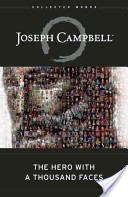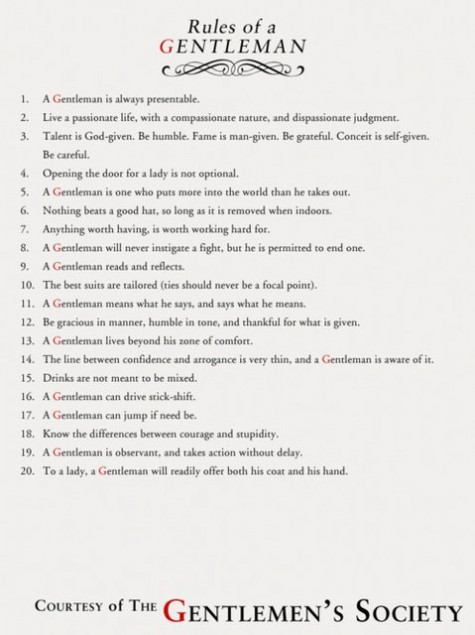
What follows is a copy of one of my first exposures to the idea of the universal hero story a few years ago. The web page is now offline, but I found a copy through the Wayback machine. Here’s the unedited text of the page. The content is not my own, but is content that I find interesting.
Mythic Heroes
It has been known for over a century that many biographies of legendary heroes have remarkably similar overall plot lines. One of the scholars who has discussed this in detail is a certain Lord Raglan, who wrote a book, The Hero, back in 1936. The more important parts of this book are reprinted in Robert Segal’s collection, In Quest of the Hero, which includes Otto Rank’s discussion of the birth stories of numerous heroes and Alan Dundes’s discussion of Jesus Christ as a mythic hero. Lord Raglan had prepared a composite hero biography; I will check on how well other heroes fit, after making certain clarifications and changes.
Here is Lord Raglan’s original list:
- The hero’s mother is a royal virgin, while
- his father is a king, and
- the father is related to the mother.
- The hero’s conception is unusual or miraculous; hence
- he is reputed to be a son of a god.
- Evil forces attempt to kill the infant or boy hero, but
- he is spirited away to safety and
- reared by foster parents in a foreign land. Besides this,
- we learn no details of his childhood until
- he journeys to his future kingdom, where
- he triumphs over the reigning king and/or a giant, dragon, or wild beast, and
- marries a princess, often his predecessor’s daughter, and
- becomes king himself.
- For a while he reigns uneventfully,
- promulgating laws. But
- he later loses favor with his subjects or with the gods and
- is driven from the throne and the city and
- meets with a mysterious death,
- often atop a hill.
- If he has children, they do not succeed him.
- His body is not buried, yet
- he has one or more holy sepulchers.
Several problems are apparent immediately, especially when one considers Lord Raglan’s examples:
- Oedipus
- Theseus
- Romulus
- Hercules (Heracles)
- Perseus
- Jason
- Bellerophon
- Pelops
- Asklepios (Asclepius, Aesculapius)
- Dionysus
- Apollo
- Zeus
- Joseph (from the Book of Genesis)
- Moses
- Elijah
- Watu Gunung (from Java)
- Nyikang (from the Shiluk of the upper Nile)
- Sigurd (Siegfried)
- Llew Llaw Gyffes (Llew Llawgyffes)
- King Arthur
- Robin Hood
In several of these examples, the hero’s mother was not quite virginal when she had the hero, though many of these heroes are first or only children. This suggests splitting the first criterion into two: The hero’s mother is a queen who has had no previous children. Likewise, “royalty” ought to be interpreted somewhat broadly as “having a high status”, which includes anything from rich people to deities. And in some cases, a human father or seeming human father is hard to identify, so I will list that as optional. Lack of mention of details of a hero’s childhood (9) may seem to be a very normal thing, but it is signficant when the hero’s infancy is described in detail, as is the case in many hero stories. Furthermore, some hero stories feature stories of unusual precocity; I believe that that ought to be added to Lord Raglan’s criteria. Likewise, having an uneventful reign (14) may be only relative. Criterion (11) may be interpreted generally as triumph over some great enemy, and criterion (18) may be interpreted as an unusual or unexpected death. One problem I have with some of Lord Raglan’s examples is that he includes temples in (22), even if they are generalized temples rather than tombs. Also, Lord Raglan often uses the most “mythical” variant to construct a score, which may make his scores upper limits.
So here’s my modified list:
- The hero’s mother is a queen,
- who has had no previous children, while
- his father, if human, is a king, and
- he is related to the hero’s mother.
- The hero’s conception is unusual or miraculous; hence
- he is reputed to be a son of a god.
- Evil forces attempt to kill the infant or boy hero, but
- he is spirited away to safety and
- reared by foster parents in a foreign land. Relative to this,
- we learn no details of his childhood, aside from unusual precocity, until
- he journeys to his future kingdom, where
- he triumphs over some great enemy — the reigning king and/or a giant, dragon, or wild beast — and
- marries a princess, often his predecessor’s daughter, and
- becomes king himself.
- For a while he reigns relatively uneventfully,
- promulgating laws. But
- he later loses favor with his subjects or with the gods and
- is driven from the throne and the city and
- meets with a mysterious, unusual, or unexpected death,
- often atop a hill.
- If he has children, they do not succeed him.
- His body is not buried, yet
- he has one or more holy sepulchers.
I’ve used the male pronoun here, because most of the examples I know of are male; it would be interesting to see some female examples.
Here is some of my scoring. I will use some of the better-known examples, both from Lord Raglan and from elsewhere; I will also include some real people who have experienced some mythification.
- Jesus Christ, 18.5 – 19, Alan Dundes: 19
- Moses, 17, Lord Raglan: 20
- Romulus, 19, Lord Raglan: 18
- Hercules (Heracles), 16, Lord Raglan: 17
- Krishna, 17.5
- Siddhartha Gautama (The Buddha), 15
- Mohammed, Founder of Islam, 5
- John Fitzgerald Kennedy, 4.5
- Charles Darwin, 4
Jesus Christ
- Mary is a commoner, but according to some apologists, the Luke genealogy applies to her instead of to Joseph. (0 – 0.5)
- She’s not called the Virgin Mary for nothing. (1)
- Joseph, though a commoner, is descended from King David (Matthew and Luke). (0.5)
- Only very distantly. (0)
- A conception which resulted in the Virgin Birth. (1)
- Yes, he’s the Son of God, God, and 1/3 of God, depending on which interpretation one prefers. (1)
- King Herod orders a massacre of all the baby boys of Bethlehem (Matthew). (1)
- His parents flee with him (1)
- to Egypt, where he spends his early childhood. (0.5)
- We only hear stories of unusual precocity (learning at the Temple, the Infancy Gospel of Thomas, the Arabic Infancy Gospel). (1)
- He goes into the wilderness and then to Galilee (synoptics) or to Jerusalem (John). (1)
- He successfully resists the Devil’s temptations, which include rule of “all the kingdoms of the world”. (0.5)
- He is described as single, but the Gospel of Philip describes him as kissing Mary Magdalene on the mouth, and there has been abundant speculation about a JC-MM relationship, but she had been a commoner without any special ancestry. (0)
- He becomes a famous religious prophet. (1)
- Although he worked many miracles, these were relatively small-scale. (1)
- His teachings are often considered laws. (1)
- After his famous Temple temper tantrum, he is arrested and his followers desert him (mainly Matthew). (1)
- He is put on trial by the Jewish and Roman authorities, and a lynch mob wants him dead. (1)
- He “dies” on that cross, despite his ability to jump off of it. (1)
- Yes. (1)
- He is childless; if (say) Mary Magdalene had had his children, we do not learn of them. (1)
- His body was only temporarily buried; he woke up three days later, appeared to his followers, and then rose up into Heaven. (1)
- Yes. (1)
Score: 18.5 – 19
Assessing Jesus Christ as a myth is bound to be controversial; Lord Raglan had avoided doing so for that reason. However, the difficulty of distinguishing the historical Jesus, if any, from the abundance of mythology about him has caused some to conclude that he had been a myth, notably Richard Price and Earl Doherty.
The Virgin Birth, for example, is rather obviously mythological, with numerous legendary pagan heroes having gods as their biological fathers. This includes some historical people supposedly having such fathers, such as Pythagoras (Apollo), Plato (also Apollo), and Alexander the Great (Zeus). Which implies that their human “fathers”, like Joseph, had been cuckolded by gods!
One counterargument may be phrased as follows:
The Christian God did not have sexual relations with that woman, Mary!
This phrasing is in analogy with former President Clinton’s evasive and hairsplitting defenses of his sexual conduct. I believe that “defense” to be equally evasive and hairsplitting, because the divine impregnation is the important thing about such a story. Interestingly, Mormonism teaches that God had indeed had sex with Mary to produce JC.
The reference to Jesus Christ being the Son of God, God, and 1/3 of God is an attempt to be uncommittal about the Trinity, which in my opinion is a hopelessly tangled theological knot.
The Infancy Gospel of Thomas and the Arabic Infancy Gospel are noncanonical Gospels that describes Jesus Christ as having performed several miracles during his childhood. Thomas includes miracles like bring to life statues of small birds that he had made, raising some dead people, and zapping a boy who bumped into his shoulder.
And the comment about jumping off of the Cross was imspired by the miracles that Jesus Christ had allegedly worked: walking on water, conjuring up bread and fish, turning water into wine, healing sick people, driving out demons, raising the dead, and zapping a certain fig tree. Yet he was either unable or unwilling to jump off that cross.
Moses
- His mother is from the priestly tribe of Levi. (0.5)
- The text suggests that Moses is her first child, (1)
- His father is also a Levite. (0.5)
- Only very distantly. (0)
- No sign of this. (0)
- No hint of this. (0)
- The Pharaoh tried to kill all the baby boys — which included him. (1)
- He is put in a basket which floats down the Nile, (1)
- and raised by the Pharaoh’s daughter in the Egyptian royal court. (1)
- Correct. (1)
- He returns to his fellow Israelites — twice. (1)
- He kills an Egyptian who had been tormenting his fellow Israelites, and he later liberates his people from the Pharaoh. (1)
- He marries a daughter of a priest of Midian, (1)
- and eventually becomes the Israelites’ leader. (1)
- After liberation, the Israelites wander around in the Sinai. (1)
- and Moses issues lots and lots of laws. (1)
- God tells him that he will not be allowed in the Promised Land, (1)
- and he is stuck in the land of Moab. (1)
- He was in good health up until he died (1)
- on top of Mt. Pisgah. (1)
- He is succeeded by Joshua son of Nun — and not by any of his children. (1)
- His body was buried, (0)
- but nobody knows where. (0)
Score: 16
My score is lower than Lord Raglan’s, because I am using only the Biblical account of him, and not later Jewish legend, which may have additional details (can anyone fill me in on this?). Also, I’ve counted being raised in the Egyptian royal court as being raised in another country, becuase that was a place very different from where his parents had lived.
Romulus
- Rhea Silvia, daughter of King Numitor.(1)
- Romulus and Remus were her only children. (1)
- In some versions, King Amulius, wearing his armor, had raped Rhea Silvia. (1)
- King Amulius was Rhea Silvia’s uncle. (1)
- Though the wicked King Amulius made Rhea Silvia a Vestal Virgin, sort of like a nun, to keep her from having children, (1)
- the god Mars made her pregnant with R and R. (1)
- King Amulius, upon discovering RS’s children, puts them in a wooden tub, which he puts in the Tiber, (1)
- but it floats down the river, (1)
- and R and R are reared first by a wolf, then by a (human) peasant family. (1)
- Correct. (1)
- Correct. (1)
- He helps Numitor defeat Amulius. (1)
- Nothing special about his wife Hersilia. (0)
- He founds Rome and becomes its first ruler, killing his twin brother along the way. (1)
- The kidnapping of the Sabine women, and the other wars he led, count against this. (0)
- He set up Rome’s laws and institutions, like the Senate. (1)
- According to some versions, Romulus turned into a tyrant. (1)
- In those versions, the Senate condemned him. (1)
- Romulus disappeared into a storm, with Mars taking him into heaven in a fiery chariot, with those alternate versions featuring the Senators executing and dismembering him. (1)
- His trip to heaven was from Capra Palus (Goat’s Marsh), which was likely very flat. (0)
- Correct. (0)
- He became worshipped as the god Quirinus. (1)
- Lapis Niger (Black Rock) in Rome’s Forum had supposedly marked his grave. (1)
Score: 19
The accounts of him are rather contradictory; I’ve followed Lord Raglan’s procedure, despite it producing some score inflation. But using only one of the variants, such as him being taken to heaven vs. him being executed by the Senate, would not lower his score very much.
Hercules (Heracles)
- Alcmene was daughter of King Electryon of Tiyrns. (1)
- Correct. (1)
- Her husband was King Amphitryon, (1)
- who was a first cousin. (1)
- Hard to tell. (1)
- Zeus was his real father, appearing to Alcmene in the form of Amphitryon and making her pregnant. (1)
- Hera tries to spite her husband Zeus by first trying to intefere with Hercules’s birth, and then by trying to kill the baby Hercules with some snakes. Which he strangles. (1)
- No. (0)
- No. (0)
- Yes. (1)
- Not sure. (0)
- He kills a lion, among other feats (1)
- He marries King Creon’s daughter Megara (1)
- Not sure. (0)
- Not sure. (0)
- Not sure. (0)
- King Eurystheus becomes displeased with him on account of some murders he had committed (1)
- and sentences him to performing his famous Twelve Labors. (1)
- He disappears from his funeral pyre (1)
- on top of Mt. Oeta. (1)
- His sons do not succeeded him. (1)
- His body is not found, (1)
- but he is worshipped in temples. (1)
Score: 16
Lord Raglan claims that he had become king of Calydon for a while, complete with uneventful rule; I was unable to find that in my sources.
Krishna
- His mother Devaki is a sister of the wicked King Kamsa; her father Devaka was rich enough to afford a dowry of 400 elephants fully decorated with golden garlands, 15,000 decorated horses, 1800 chariots, and the hiring of 200 pretty young ladies to follow her. (1)
- She had seven sons before having Krishna. (0)
- His father Vasudeva was the son of sort-of-king Surasena. (1)
- No hint of that. (0)
- Devaki learned that she was pregnant with someone special when she became pregnant with Krishna. (1)
- Krishna is considered an avatar of the great Hindu god Vishnu. (1)
- King Kamsa had imprisoned Vasudeva and Devaki, and had killed their previous offspring. (1)
- When he was born, he was switched with Yogamaya, daughter of Yasoda and Nanda (mother and father), thus frustrating Kamsa. (1)
- Yasoda and Nanda return to their home and raise Krishna there. (1)
- There are some childhood details, such as his learning to dance, his destroying some wicked demons, and his cavortings with some gopis. (0)
- King Kamsa invites Krishna and a friend to a wrestling match, hoping that Krishna will be defeated. (1)
- But Krishna wins, prompting Kamsa to order Krishna’s foster father and several others murdered. Whereupon Krishna kills Kamsa. (1)
- Krishna marries some beautiful princesses. (1)
- He becomes a king. (1)
- The Kurukshetra War counts against this; Krishna also fights more demons and plays his flute, Krishna’s fun loving is a rarity among religious prophets; only Jesus Christ comes anywhere close with his turning of water into wine for a wedding party. (0)
- Krishna delivers the Bhagavad-Gita to Arjuna at the beginning of that war. (1)
- His family misbehaves, leading to their destruction. (1)
- With his family destroyed and his kingdom torn apart by civil war, Krishna leaves the place to wander about by himself. He saw the destruction of his clan and kingdom. (1)
- He was shot in the foot by an archer named “Jara” (“Old Age”). (0.5)
- In a forest by the seashore. (0)
- He has no successors. (1)
- He rose up into heaven. (1)
- Several places are supposedly his last resting place. (1)
Score: 17.5
Other Hindu religious figures are known to have Mythic-Hero-like biographies.
Siddhartha Gautama (The Buddha)
- Not sure about the royal origins or the virginity of his mother Maya (0.5),
- Yes. (1)
- His father Suddhodhana was a king, or at least a noble. (1)
- No hint of this. (0)
- He was conceived when Maya dreamed that a white elephant had entered her body through her side. (1)
- He was an enlightened being on his last reincarnation before achieving Nirvana. (1)
- King Suddhodhana tries to keep him from his future career by pampering him, keeping him from an awareness of suffering and death, instead of by trying to kill him. (0.5)
- A pampering which continues through his childhood. (0)
- Maya dies and he is raised by her sister Mahaprajaprati. (0)
- Apparently so. (1)
- He sees an old man, a sick man, a dead man, and an ascetic, and he deserts his wife and son in search of enlightenment as to what he saw. (1)
- He goes on a long quest, mortifying the flesh, and experiencing Mara the Tempter trying to lead him astray, until he achieves enlightenment under a Bodhi tree. (1)
- He effectively stays single the rest of his life. (0)
- He becomes the leader of his new religious movement. (1)
- He decides to spread the word about what he has learned. (1)
- Correct. (1)
- He issues his teachings, which contain laws of a sort. (1)
- Does not seem to happen. (0)
- Does not seem to happen. (0)
- He dies from eating a meal of tainted pork, an oddity because Buddhism has the ideal of vegetarianism. (1)
- Nothing special about where he died. (0)
- His son does not succeed him. (1)
- He is cremated. (1)
- He has no tomb, but there are temples containing his relics, like the Temple of the Tooth in Kandy, Sri Lanka. (1)
Score: 15
Though at first sight, being pampered is very different from someone trying to kill him, that pampering had the same intended effect: keeping Siddhartha Gautama from becoming a religious prophet. So that is why I include it in the “evil forces try to kill him” criterion.
Mohammed, Founder of Islam
- Nothing special. (0)
- Not sure. (0)
- Nothing special. (0)
- Nothing beyond their both being Quraysh. (0)
- No sign of that. (0)
- No sign of that. (0)
- Does not happen. (0)
- Does not happen. (0)
- Does not happen. (0)
- No infancy details makes this irrelevant. (0)
- He goes to a cave in the mountains, where he starts receiving revelations. (0.5)
- He brings his new religion back to Mecca, defeating pagans. (1)
- He marries Khadija, a rich businesswoman. (0.5)
- He becomes a leader as well as a founder. (1)
- He has to flee to Medina, and later triumphantly reconquers Mecca. (0)
- He keeps on receiving revelations. (1)
- Never happens. (0)
- Does not really happen, unless one counts having to flee to Medina. (0)
- He gets sick and dies in a normal sort of fashion. (0)
- He dies in Medina. (0)
- Correct, though Shiites believe that the descendants of Ali, Mohammed’s cousin and son-in-law, are Islam’s legitimate leaders. (1)
- He was buried in Medina. (0)
- Only relevant if his body had mysteriously disappeared. (0)
Score: 5
I have omitted the part about him riding a flying horse to heaven, because I am not sure how that fits in with the rest of his biography. If he did not really die, but instead rode such a horse to heaven, then that raises his score by 2.
John Fitzgerald Kennedy
- His mother Rose Fitzgerald was the daughter of a notable Boston politician, John “Honey Fitz” Fitzgerald. (0.5)
- She had Joseph P. Kennedy, Jr. before having JFK, though he died in WWII. (0.5)
- his father Joseph P. Kennedy was a successful businessman who was involved in politics. (0.5)
- No evidence of this. (0).
- No evidence of this. (0).
- Even the biggest JFK groupies don’t claim this. (0).
- Does not happen. (0)
- No need to. (0)
- He was raised by his biological parents. (0)
- No infancy details makes this irrelevant. (0)
- He enters politics in his home state, Massachusetts. (0)
- Defeating Richard Nixon in 1960 is hardly a very great triumph. (0)
- He married Jacqueline Bouvier, who had come from a rich family. (0.5)
- He became President. (1)
- His Presidency was rather tempestuous, with the Bay of Pigs would-be invasion and the Cuban Missile Crisis. (0)
- His record was rather mixed; he was slow to support civil rights, and he proposed landing on the Moon only late in his Presidency. (0.5)
- Does not happen. (0)
- Does not happen. (0)
- He was assassinated by a lone lunatic who got a good shot at him. (0)
- He is killed in his parade car. (0)
- His son JFK Jr. was a lawyer, journalist, publisher, and sex symbol; his daughter Caroline has not been as notable. (1)
- His body resides in Arlington National Cemetery. (0)
- Not sure what would qualify as one. (0)
Score: 4.5
The death of JFK has been the subject of much speculation and conspiracy theorizing, but calling it a mystery would raise his score only by 1.
Charles Darwin
- His mother, Susannah Wedgwood, came from an aristocratic family. (0.5)
- She had four previous ones before having him. (0)
- his father, Robert Darwin, came from an aristocratic family; his father was the noted biologist Erasmus Darwin. (0.5)
- No evidence of this. (0).
- No evidence of this. (0).
- Even his most fervent admirers consider him 100% human. (0)
- Does not happen. (0)
- No need to. (0)
- He was raised by his biological parents. (0)
- No infancy details makes this irrelevant. (0)
- His voyage aboard the Beagle might possibly be interpreted as that, but he becomes convinced of evolution only well after that voyage. (0)
- He publishes the Origin of Speciesand other important writings. (0.5)
- He marries Emma Wedgwood, from his mother’s family. (0.5)
- He gets hailed as a great scientist. (1)
- He continues to be productive, though it is hard for him to compete with his magnum opus. (0)
- His discoveries may or may not qualify as “laws”; they are descriptions, not decrees. (0.5)
- Does not happen. (0)
- Does not happen. (0)
- He dies a normal sort of death. (0)
- in his house. (0)
- Some of his children become notable scientists, though in different fields. (0.5)
- His body is buried in Westminster Abbey. (0)
- Not sure what would qualify as one. (0)
Score: 4
If Charles Darwin had lost favor with his scientist colleagues, they would have dismissed him as a crackpot. But they did the exact opposite, and he got buried in the most honorable place in Britain.
Source: Originally found at http://homepage.mac.com/lpetrich/www/writings/Mythic_Hero.html



 The happy ending is justly scorned as a misrepresentation; for the world, as we know it, as we have seen it, yields but one ending: death, disintegration, dismemberment, and the crucifixion of our heart with the passing of the forms that we have loved. p 25-26
The happy ending is justly scorned as a misrepresentation; for the world, as we know it, as we have seen it, yields but one ending: death, disintegration, dismemberment, and the crucifixion of our heart with the passing of the forms that we have loved. p 25-26
 I’ve been approached by petitioners for Planned Parenthood and Green Peace near the REI Flagship store or on the street near
I’ve been approached by petitioners for Planned Parenthood and Green Peace near the REI Flagship store or on the street near